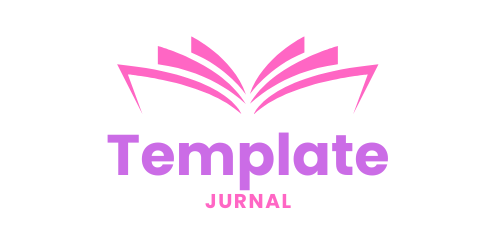SISTEM PENYITAAN BARANG PADA PEMBIAYAAN MACET DI PT. COLOMBUS MEGAH BUMI KOTA PALOPO DALAM PERSPEKTIF EKONOMI ISLAM
DOI:
https://doi.org/10.24256/joins.v1i1.294Abstract
ABSTRACT
This research discusses the perspective of Islamic economics on the system of confiscation of goods in bad financing at PT. Colombus Megah Bumi Kota Palopo regarding how the system of confiscation of goods on bad financing and the Islamic economic perspective on the system of confiscation of goods on bad financing at PT. Great Colombus Earth Palopo
This type of research is qualitative with a normative approach, to obtain the required data, the authors use the research location through observation, interviews, and documentation.
Â
Based on the research results, it can be concluded that the system of confiscation of goods on the financing is bad at PT. Colombus Megah Bumi Palopo has several stages, namely if within 3 (three) months the consumer does not make a payment, the goods will be withdrawn according to the applicable office regulations, the consumer is still given a policy with an additional period of 1 (one) week to fulfill payment for 3 (three) months in arrears, if the consumer is unable to do so, the goods will be immediately withdrawn / confiscated. Islamic economic perspective on goods confiscation system on bad financing at PT. Colombus Megah Bumi Palopo has a relevant correlation between the theory and principles of Islamic economics against the reality of the confiscation of goods by the company against consumers who experience bad installments.
Â
ABSTRAK
Penelitian ini membahas tentang perspektif ekonomi Islam terhadap system penyitaan barang pada pembiayaan macet di PT. Colombus Megah Bumi Kota Palopo mengenai bagaimana sistem penyitaan barang pada pembiayaan macet dan perspektif ekonomi Islam terhadap sistem penyitaan barang pada pembiayaan macet di PT. Colombus Megah Bumi Palopo
             Jenis Penelitan ini adaah kwalitatif dengan pendekatan normativ, untuk memperoleh data yang dibutuhkan, maka penulis menggunakan lokasi penelitian melalui observasi, interview, dan dokumentasi.
                       Berdasarkan hasil penelitian dapat disimpulkan bahwa sistem penyitaan barang pada pembiayaan macet di PT. Colombus Megah Bumi Palopo memiliki beberapa tahapan, yaitu jika dalam kurun waktu 3 (tiga) bulan konsumen tidak melakukan pembayaran, maka barang akan ditarik sesuai ketentuan kantor yang berlaku, kepada konsumen tersebut masih diberikan kebijakan dengan penambahan jangka waktu 1 (satu) minggu untuk memenuhi pembayaran selama 3 (tiga) bulan yang tertunggak, jika konsumen tidak dapat melakukan hal tersebut, maka barang akan segara ditarik / disita. Perspektif ekonomi Islam terhadap sistem penyitaan barang pada pembiayaan macet di PT. Colombus Megah Bumi Palopo memiliki korelasi yang relevan antara teori dan prinsip ekonomi Islam terhadap realitas yang terjadi mengenai penyitaan barang yang dilakukan oleh pihak perusahaan terhadap konsumen yang mengalami angsuran macet.
Kata kunci: Penyitaan Barang dan Ekonomi Islam
Â
DAFTAR PUSTAKA
Al-Jaziri, Abdurrahman, Al-Fiqh, ‘ ala Madzahib al-arba’ah, Beirut: Dar al-Qalam, 2010.
Anonoim, Undang-Undang KUHAP, Jakarta: Sinar Grafika,1998.
Arifin, Tatang, Menyususn Rencana Penelitian, Jakarta: Raja Grafindo, 1993.
Arikunto, Suharsimi, Prosedur Penelitian Suatu Pendekatan Praktik, Jakarta: Rineka Cipta, 2002.
 Bakar Abu Imam Taqyuddin bin Muhammad al-Husaini, Kifayatul Akhyar fi Halli Ghayatil Ikhtishor, Semarang: Usaha Keluarga, 2000.
 Bogdan dan Taylor, Pengantar Metode Penelitian, Jakarta: Universitas Indonesia (UI-Press), 1992.
 Dahlan Abdul Azis, dkk., Ensiklopedia Hukum Islam, Jakarta: PT Ichtiar Baru van Hoeve, 2001.
 Departemen Agama RI., al-Qur’an dan Terjmahnya, Semarang: CV., Karya Thoha Putra, 2005.
 Dewantara, Adhy, Pengaruh Perputaran Modal Kerja terhadap Pengembangan Usaha pada Industry Meubel Sarina di Balandai Kota Palopo Skripsi Prodi Manajemen, STIEM Palopo, 2011.
 Hadi, Amirul dan Haryono, Metodologi Penelitian dan Pendidikan. Cet. III; Bandung : Pustaka Setia, 2005.
 An-Nabhani, Taqihyuddin, Membanguan Sistem Ekonomi Alternatif Perspektif Islam, Surabaya: Risalah Gusti, 1996.
 Marlina, Tinjauan Ekonomi Islam terhadap Modal Simpanan dalam Meningkatkan Sisa Hasil Usaha, Skripsi Prodi Ekonomi Islam, Jurusan Syariah STAIN Palopo, 2011.
 Muhammad, Ibrahim Quthb, Kebijakan Ekonomi: Umar Bin Khattab, Bandung: Putaka Setia, 2002.
 Muslim, Imam, Sohih Muslim, Juz II, Bandung: Dahlan, 2000
 Moleong, J. Lexy, Metodologi Penelitian Kualitatif Edisi Revisi, Bandung: Remaja Rosdakarya, 2004.
 Qardhawi, Yusuf, Norma dan Etika Islam, Jakarta: Gema Insani Press, 1997.
 Qureshi, Ikbal Anware, Islam dan Teori Pembungaan Uang, Jakarta: Tintamas, 2011.
 RG. Burgan, Multiple Strategy in Field Research†dalam Burges RG (Ed). Field Research: A Sourcebook and Field Manual, London: George Allen Unwin, 2002.
Downloads
Additional Files
Published
Issue
Section
Citation Check
License
Authors who wish to publish and disseminate their papers with the Journal Of Institution And Sharia Finance shall agree to the publishing rights set by Journal Of Institution And Sharia Finance Authors understand that they shall assign publication right to as part of the process upon acceptance for publication. Authors agreed that they will transfer certain copyrights to Journal Of Institution And Sharia Finance. Consecutively, authors still retain some rights to use and share their own published articles without written permission from Journal Of Institution And Sharia Finance.
Authors granted Journal Of Institution And Sharia Finance. these following rights; (1) the right to publish and provide the manuscripts in all forms and media for the purpose of publication and dissemination, (2) the authority to enforce the rights in the manuscript, for example in the case of plagiarism or in copyright infringement.
Journal Of Institution And Sharia Finance will follow COPE’s Code of Conduct and Best Practice Guidelines for Journal Editors to protect the research results and takes allegations of any infringements, plagiarisms, ethical issues, and frauds should those issues arise. The manuscript is attributed as authors' work, and are properly identified.



